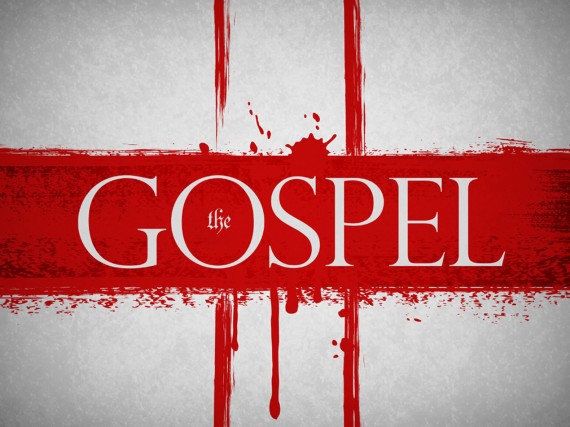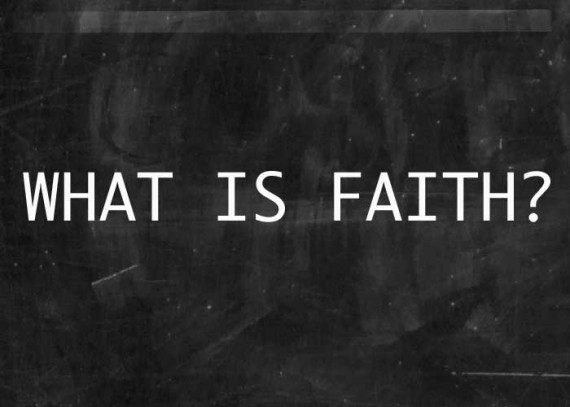In a previous post I wrote about the popular misunderstanding of the word “gospel,” that it refers only to receiving eternal life and going to heaven when you die.I then argued that the gospel is everything related to Jesus Christ.
Based on this understanding of the word “gospel” it is not wrong to say that the biblical gospel is Jesus Christ, including everything about Him and related to Him.
The gospel is centered on Jesus Christ, and everything that emanates from Jesus is “gospel truth.” And what is it that emanates from Jesus Christ? Everything! From the creation of the universe to the future of the universe, all is dependent upon Jesus Christ. The truths about reconciliation, redemption, and resurrection all require Jesus Christ.

Without Jesus, there is no such thing as forgiveness, grace, mercy, hope, or healing.
Why did God create mankind? Because of Jesus.
Why did God, out of all the people of the world, choose Abram and the nation that would come from Him? Because of Jesus.
Why was God patient with the Israelites in the wilderness? Because of Jesus.
Why did God raise up Judges, Priests, Kings, and Prophets? Because of Jesus.
Moving into the New Testament, why did God send the Spirit to birth the church at Pentecost? Because of Jesus.
Why did God send the church out into the world to proclaim a message of God’s love? Because of Jesus.
Why is God going to restore the world and remake heaven and earth so that we can dwell with Him for all eternity? Because of Jesus!
It’s all because of Jesus. Jesus is the gospel and the gospel is Jesus.
Calvinism is not the Gospel; Jesus is!
This is why, in my opinion, it is the height of idolatry to say, as some Calvinists do, that “Calvinism is the gospel, and the gospel is Calvinism.” (see Custance, 302; Engelsma, 18; Spurgeon, 129).
I love C.H. Spurgeon, but he was wrong about Calvinism…

I deny Calvinism but I uphold the gospel because Calvinism is not the gospel.
That honor belongs to Jesus Christ alone. Even if Calvinism were true, the most that could be said of it is that Calvinism is one small aspect of the gospel. But to equate Calvinism with the entirety of gospel is to replace the infinite glory of Jesus Christ with a small, manmade system of theology. Such an idea is completely contrary to the Reformation principles of Solus Christus and Soli Deo Gloria.
But here is the point: If the gospel is Jesus Christ and all the truth that emanates from Him, then this means that it is completely impossible for any finite human being to ever believe the gospel. Why? Because just as Jesus and the truth about Him is infinite, so also, the gospel is infinite. It is impossible to ever believe everything there is to know about Jesus, who He is, and what He has done.
Yet if the biblical gospel is infinite then it would be impossible to ever “preach the gospel” (Luke 4:18; Acts 16:10; Rom 1:15; etc.) or “believe in the gospel” (Mark 1:15). However, Jesus and the apostles seem to have done so quite well.
Nevertheless, when these various gospel-preaching events are compared, one discovers that there is no set list of ten gospel truths, or four laws, or six principles that are always presented in every situation. Sometimes the one proclaiming the gospel talks about sin; sometimes not. Sometimes they talk about the Kingdom of God; sometimes not; Sometimes they talk about grace, mercy, forgiveness, and reconciliation; sometimes not. Sometimes they talk about the death and resurrection of Jesus; sometimes not. Sometimes they talk about the post-resurrection appearances of Jesus; sometimes not.
How to Share the Gospel
The point is that all of these truths which get shared at one time or another in the New Testament as part of the “gospel” are simply examples of some of the truth that emanates from the person and work of Jesus Christ, who IS the gospel.
When a person is presenting “the gospel” they obviously cannot share everything, and so they do their best (along with the help of the Holy Spirit) to pick and choose which truths of the gospel should be shared in that particular context to those particular people.
Just as the same person in a different context would share different gospel truths, so also would a different person in that same context. This is one of the beautiful things of the gospel. Because there is so much truth to the gospel, there is no such thing as one set of truths that must always be shared. Since different people are in different places with their walk with God, and each of us have different personalities and different levels of knowledge, God allows each of us to share whatever we know with the people in front of us in whatever way we think best.
That’s liberating, isn’t it?
There are no four laws, five points, or six steps to the gospel. There is only Jesus.
If we simply share Jesus with people, we are sharing the gospel, whether it is by word or action, in a few seconds or over the course of many years, or to a large crowd or to only one person.
The goal of sharing the gospel, of course, is to draw a person closer to Jesus, whether they are already a “Christian” or not, for Christians need to hear gospel truths just as much as so-called “non-Christians.”
We will conclude with one final post on the gospel tomorrow, but until then, what do you think of this idea that Jesus is the Gospel? What do you think of the claim by some Calvinists that Calvinism is the gospel?





 Though it can sometimes refer simply to an encouraging message (1 Thess 3:6), and Jesus often used the term to describe the coming of the Kingdom of God (cf. Matt 4:23; 9:35), Paul is the one who used the word in his writings, and he uses the word most often in reference to describe the complete chain of events regarding what God has done for sinful humanity through Jesus Christ to provide eternal life for them.
Though it can sometimes refer simply to an encouraging message (1 Thess 3:6), and Jesus often used the term to describe the coming of the Kingdom of God (cf. Matt 4:23; 9:35), Paul is the one who used the word in his writings, and he uses the word most often in reference to describe the complete chain of events regarding what God has done for sinful humanity through Jesus Christ to provide eternal life for them.





 Though Scripture does talk about “little faith” and “great faith” (e.g., Matt 8:10, 26), this is not a reference to the degree of faith someone has, but to the difficulty of the truth believed. Some things are easier to believe than others, and so when someone does not even believe the simple and obvious things, they have little faith, whereas, when someone believes things that are difficult to believe, they have great faith (See my article, “
Though Scripture does talk about “little faith” and “great faith” (e.g., Matt 8:10, 26), this is not a reference to the degree of faith someone has, but to the difficulty of the truth believed. Some things are easier to believe than others, and so when someone does not even believe the simple and obvious things, they have little faith, whereas, when someone believes things that are difficult to believe, they have great faith (See my article, “


